Formula Milk for Babies: How Much Does Your Baby Need?
- Feeding Cues of Babies
- How Much Formula Milk Does Your Child Need?
- Amount of Formula As Per Baby’s Requirement
- How Often Should You Feed Your Baby?
- How Do You Know If Your Baby Is Having Enough Formula?
- What’s the Ideal Time to Replace Formula?
- FAQs
Choosing whether to breastfeed or formula-feed is a major decision for any new parent. Formula milk for a newborn baby is often chosen when the supply of breast milk is restricted due to the low formation or busy livelihood of parents. Unlike breastfeeding, when you opt for formula milk, it can be confusing to try to work out just how much to give the baby every day. The answer lies in the baby’s age, weight and whether you’re feeding only formula or giving it as a supplement alongside breast milk or solids. From answering your question, ‘Is formula milk good for babies?’ to making up your mind on how much formula to give a baby to catching up on their hunger cues to provide appropriate feed, this article has everything you should know!
Feeding Cues of Babies
Babies need to be fed often, possibly every 2-3 hours. Every baby is different, so it’s important to learn to spot when the baby is hungry before it gets too upset and cries. The cues start with opening and closing the mouth, licking lips, and sucking on hands, fingers or clothing (1). It is common for them to root for up to 4 months of age. That’s when they turn their head and open their mouth towards your chest. Babies also make sucking motions and bring their hands to their mouths; this is a good time to feed them. Older babies also move their heads frantically from side to side while crying when hungry.
However, it can be hard to spot feeding cues sometimes. They may naturally root when you offer them the bottle even though they are not hungry but just want to be held.
How Much Formula Milk Does Your Child Need?
It can be tricky to work out how much formula milk your baby needs as each baby has a different appetite, and its nutritional needs change every month. Generally, babies eat when they are hungry and stop when they feel full. Formula-fed babies tend to eat more and be heavier than breastfed ones. The general rule of thumb on formula milk measurements for babies is that it is measured as per their body weight. Babies require between 150 ml and 200 ml of formula per kg of body weight each day. That is, if a baby weighs 3 kg, it will need between 450 ml and 600 ml of formula per day. However, they may not want to drink that much in their first week or not take the same amount at each feeding, so keep in mind not to force them to feed.

If you wonder how much formula milk a newborn should drink, try giving them about 60-70ml of formula at each feed, as they won’t be able to take more than this in one go.
Amount of Formula As Per Baby’s Requirement
A baby’s formula milk consumption depends not only on weight but also on age. As they grow older, their nutritional and calorie needs go higher, and they eat more. During the first few weeks, they might drink an average of around 70 ml of formula in one feed. Therefore, the formula milk for 0-6 months babies quantity for one day would be around 420 to 700 ml. Between the first two weeks and two months, they would consume around 75-105 ml in each feed, which would add up to a total ranging between 450 ml and 735 ml in 1 day. When they are about 2-6 months old, they would consume between 105 ml and 210 ml of infant milk formula in a feed.
The formula milk for a 6-month-old baby totals around 900 ml a day, and they would want between 210 ml and 240 ml at each feed. Also, by this time, most babies would be introduced to solid foods, and their formula intake would gradually drop down to around 600 ml a day. CDC suggests gradually switching from formula to plain whole cow milk or unsweetened, fortified soy milk once the baby turns 12 months. You can start the transition by replacing one formula feed with whole milk and then gradually increasing the replacements (2). Do not provide your baby with non-fat or low-fat milk before their second birthday as it does have necessary fat for the child’s brain development (3).
Here’s a rough guide on the amount of feed a baby requires as per their age (3):
| Age | Amount of Formula in One Feed |
| Birth – 2 weeks | 45-90 ml |
| 2 weeks – 2 months | 90-150 ml |
| 3-6 months | 120 ml and 210 ml |
| 6-9 months old | 180-230 ml |
How Often Should You Feed Your Baby?
It is recommended that babies be fed on demand, which is whenever they show signs of hunger. Formula-fed newborns feed every 2-3 hours. As they get older, the capacities of their stomachs increase; they eat more in one feed and need to be fed every 3-4 hours. As mentioned earlier, you need to look for feeding cues from the baby and feed accordingly. You need not wait until the baby gets cranky and starts crying till you feed them. Crying is often a late sign of hunger. It is also equally important to look for signs that the baby has had enough to slow down and pause.
Also, if the baby is young or having problems gaining weight, it should be fed often, even if it means waking it up from sleep. In such cases, it is advisable to consult a doctor on how much and how often to feed it. When it comes to finding the best formula milk for babies 0-6 months or the best formula milk for babies 6-12 months, it is always wise to consult your paediatrician for customised guidance.
How Do You Know If Your Baby Is Having Enough Formula?
The baby’s physical appearance and behaviour can give you an insight into whether or not they’re getting enough formula.
The following signs indicate that they are getting inadequate formula (underfed):
- The rate of weight gain in the baby is slower than normal. This is a sure sign that they are being underfed, and a paediatrician must be consulted immediately.
- They seem unsatisfied even after a complete feeding.
- The urine output is diminished.
- Orange crystals appear in the wet diaper, which indicates dehydration and insufficient fluid intake.
- The baby’s skin has a wrinkled and loose appearance.
- The baby cries more than usual.

The following signs indicate that the baby is receiving too much formula (overfed):
- The baby spits or vomits immediately after feeding.
- The baby experiences gas and colicky abdominal pain after feeding and cries, drawing its leg up to its tummy.
- The baby is gaining weight rapidly and weighs more than it should for its age.
The signs of a baby receiving just the right amount of formula (3):
- They show a steady weight gain after two weeks and maintain it until the first year.
- They seem happy, satisfied and relaxed after feeding.
- They pass pale urine and need about 5-6 wet diapers daily.
However, there are conditions that deviate from the above-mentioned norms. Babies can go through growth spurts at 2–6 weeks, four months, and six months. A growth spurt is a period of rapid growth and can happen at any time. During one such spurt, they tend to eat more and are hungrier than usual.
Also, formula-fed babies tend to drink more. Breastfeeding gives the baby moderate control over the milk intake, unlike in a bottle, where the milk flows readily. Since there’s more milk in the bottle and the babies have a natural sucking reflex, they tend to consume more and are at risk of overfeeding. Formula milk and breast milk are metabolised differently, and the formula falls short in nutritional content compared to breast milk. Hence, they may require more.
What’s the Ideal Time to Replace Formula?
The ideal time to start replacing formula milk is about six months when you begin to introduce them to solid foods. But since there aren’t many solid foods they would like to eat, they won’t get all the nutrition needed, so it’s important to keep them on the formula until they are about a year old. You’ll begin to notice a drop in their formula intake from 900 ml a day to about 600 ml as you begin to feed them more solids. After a year, babies only need about 350 ml of milk a day, either formula, breastmilk, or high-fat cow milk. If they have been raised mostly on formula and are fully established on solids, start decreasing the formula incrementally.
FAQs
1. Should I skip formula feeding if my baby continues to feed?
As per the American Academy of Pediatrics, if your baby is only a few weeks old and continues to sleep longer than 4-5 hours and starts missing their feeding, then you can wake them up and offer some formula (4).
2. Can my baby overfeed formula milk?
Yes, it is possible for a baby to have too much formula that they require. Here are some signs you should not ignore – Frequent spitting up after feeding formula, tummy pain, and excessive weight gain too quickly may indicate an overflow of formula.
3. Can my baby cry only because of hunger?
No, trying can indicate many reasons – wet diapers, gas issues, feeling hot or cold, tight clothing, sleepiness, or wanting a close connection with the mother in case of overstimulation (5). It could not be just hunger that babies cry.
4. Is it okay to feed my baby as much formula as they want?
Babies, during their growth spurts, need more formula than usual, and sometimes babies do not establish the cue to a full stomach and continue to feed. If your little one is looking for consistent feeding, then you should consult a paediatrician.
Formula feeding for babies is a healthy alternative to breastfeeding. It provides almost all beneficial nutrients for the baby to grow. Hence, it’s important to know how much formula milk is adequate for your baby so that the baby doesn’t miss out on important nutrition.
References/Resources:
1. How Often and How Much Should Your Baby Eat?; American Academy of Pediatrics; https://www.healthychildren.org/english/ages-stages/baby/feeding-nutrition/pages/how-often-and-how-much-should-your-baby-eat.aspx
2. How Much and How Often to Feed Infant Formula; CDC; https://www.cdc.gov/nutrition/infantandtoddlernutrition/formula-feeding/how-much-how-often.html
3. Formula Feeding FAQs: How Much and How Often; Nemours KidsHealth; https://kidshealth.org/en/parents/formulafeed-often.html
4. Amount and Schedule of Baby Formula Feedings; American Academy of Pediatrics; https://www.healthychildren.org/English/ages-stages/baby/formula-feeding/Pages/amount-and-schedule-of-formula-feedings.aspx
5. Crying Baby – Before 3 Months Old; Seattle Children’s; https://www.seattlechildrens.org/conditions/a-z/crying-baby-before-3-months-old/
Also Read:
Dairy Products for Infants
How to Choose The Best Baby Formula?
Must Knows About Formula Feeding Your Baby
Should You Give Packaged or Toned Milk to Babies?
Was This Article Helpful?
Parenting is a huge responsibility, for you as a caregiver, but also for us as a parenting content platform. We understand that and take our responsibility of creating credible content seriously. FirstCry Parenting articles are written and published only after extensive research using factually sound references to deliver quality content that is accurate, validated by experts, and completely reliable. To understand how we go about creating content that is credible, read our editorial policy here.






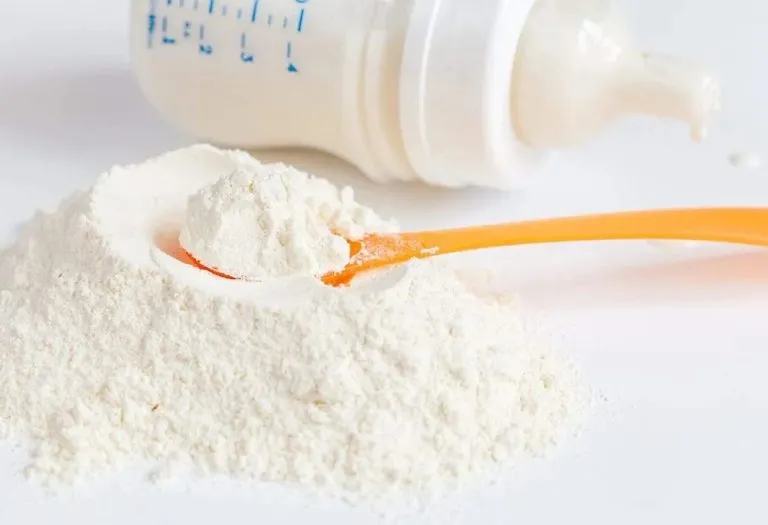
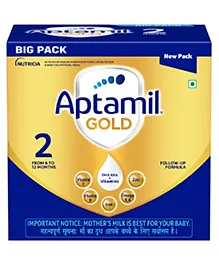
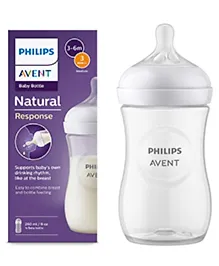


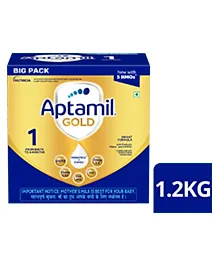
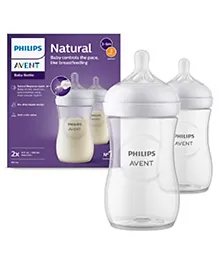

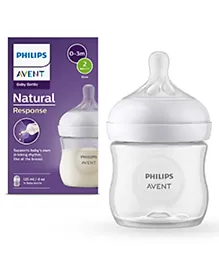

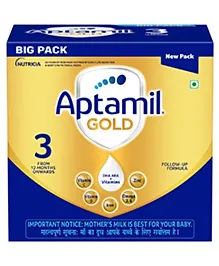







.svg)


















